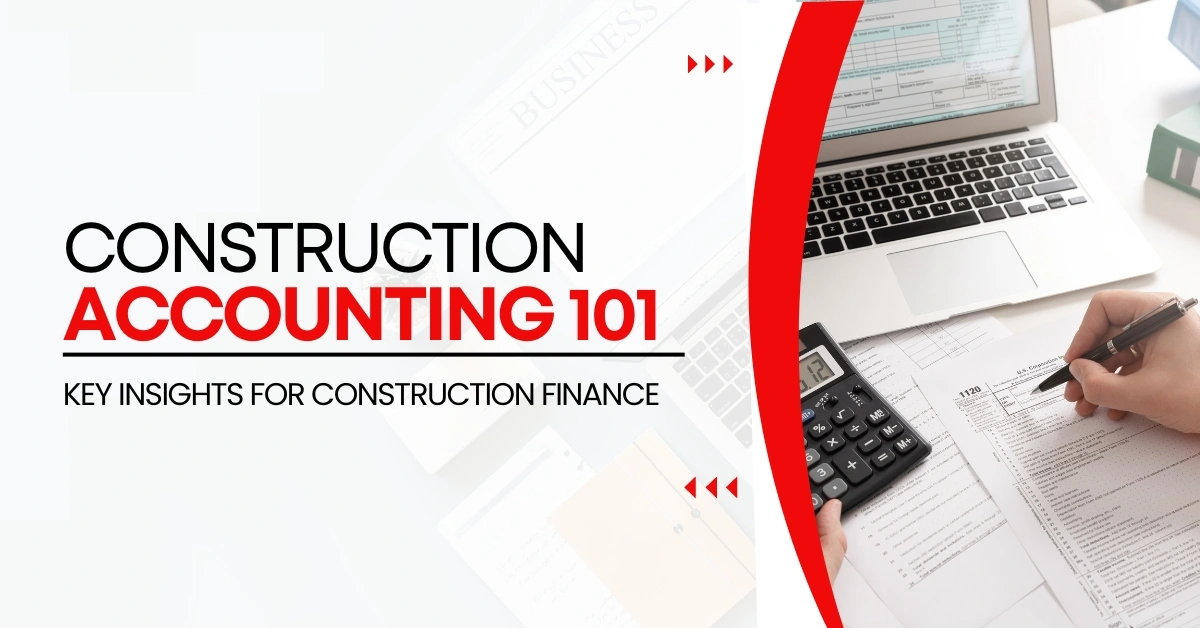Construction Accounting: Expert Solutions for Managing Project Budgets and Costs
The Necessary Duty of Building And Construction Bookkeeping in Ensuring Financial Precision
In the facility landscape of construction monitoring, the duty of building and construction audit becomes a vital aspect in preserving economic honesty. By giving a structure for exact tracking of expenses and profits, this customized accountancy technique not just aids in reliable task oversight but likewise boosts stakeholder confidence. The implications of disregarding this important function can be profound, influencing whatever from task timelines to overall earnings. As we discover the essential components and best techniques within building bookkeeping, the importance of this discipline ends up being significantly noticeable. What are the surprise prices that could threaten job success?
Importance of Accurate Financial Tracking
Precise financial tracking is the backbone of reliable building and construction accountancy, serving as a vital tool for task managers and financial police officers alike. In the extremely dynamic building and construction atmosphere, where budgets can rise and fall and timelines can move, accurate economic tracking ensures that all economic activities are recorded and kept track of in actual time. This method enables stakeholders to make enlightened decisions based upon up-to-date economic data, therefore reducing the threat of overspending and enhancing task success.
In addition, accurate economic tracking assists in conformity with regulative needs and industry criteria. By maintaining in-depth documents of expenses, profits, and project expenses, building and construction firms can quickly generate necessary paperwork throughout audits and evaluations. This openness not just fosters count on amongst clients and partners but likewise alleviates possible legal issues.

Trick Elements of Building Bookkeeping
In the realm of construction audit, a number of essential components play a crucial function in guaranteeing financial precision and project success. Among the most crucial components is task costing, which entails tracking all costs associated with a certain project, consisting of labor, materials, and expenses. This process allows for precise budgeting and forecasting, allowing construction companies to evaluate productivity efficiently.
An additional necessary component is modification order management, which attends to alterations to the initial agreement. Precise documents and tracking of these modifications are vital for preserving task budgets and timelines. Furthermore, economic reporting plays a critical role, supplying stakeholders with insights into job efficiency and overall monetary wellness.
Capital monitoring is also significant, as it makes sure that the firm has sufficient liquidity to satisfy its commitments while taking care of project expenditures. Finally, conformity with regulatory requirements and tax responsibilities is an essential aspect of building accountancy, guarding the firm from legal repercussions.
Influence On Job Administration
Efficient building bookkeeping substantially affects job administration by supplying important economic information that notifies decision-making. Accurate economic records enable project supervisors to track spending plans, projection capital, and analyze job productivity in actual time. This monetary understanding is important for making educated decisions concerning source appropriation, subcontractor option, and job scheduling.
In addition, construction audit assists in risk monitoring by determining variations between approximated and actual costs. When task managers can quickly determine inconsistencies, they can execute corrective actions to reduce potential economic losses. This positive approach not just helps in keeping project timelines yet likewise enhances general project performance.
Additionally, reliable building audit supports interaction among stakeholders, consisting of clients, read here financiers, and employee. construction accounting. Clear financial coverage fosters depend on and collaboration, making sure that all parties are lined up on task goals and monetary assumptions
Finest Practices for Financial Precision
Establishing finest techniques for financial accuracy within building and construction bookkeeping is crucial for guaranteeing job success. A vital practice is preserving thorough record-keeping. This includes tracking all transactions associated with labor, products, and overhead expenses in real-time, which assists to recognize discrepancies early and guarantees that monetary information is constantly up to date.

Another best practice is executing a robust budgeting process. Accurate budgeting not just aids in forecasting task prices yet additionally gives a standard versus which actual costs can be measured. Routinely comparing actual costs to allocated amounts enables prompt changes and much better monetary control.
Furthermore, conducting periodic audits is crucial. Internal audits can recognize possible errors or deceitful activities before they rise, while exterior audits offer an impartial review of economic methods, guaranteeing compliance with sector requirements.
Training team in monetary management and accountancy principles is also crucial. Knowledgeable employees are much better equipped to detect mistakes and understand the value of financial precision in job monitoring.
Finally, cultivating open communication in between job supervisors and monetary groups improves cooperation, guaranteeing that economic decisions are straightened with project objectives (construction accounting). These best methods jointly contribute to a strong foundation for monetary precision in building audit
Tools and Software Application for Construction Accountancy
Picking the right tools and software application for building and construction bookkeeping can dramatically improve monetary administration procedures. The complexity of building and construction projects requires specialized accountancy options that suit special process, project tracking, and financial coverage demands.
Among the leading software options, Sage 300 Building And Construction and Actual Estate (previously Sage Timberline) provides extensive features customized to construction businesses, consisting of project administration, payroll combination, and detailed financial reporting. copyright Desktop, while a lot more basic, gives customizable features that are useful for smaller sized building companies, click here to read allowing them to check these guys out handle invoices, costs, and payroll efficiently.
Another noteworthy alternative is Point of view View, which integrates accounting with project monitoring, making real-time information available for informed decision-making. Procore additionally attracts attention by supplying a robust platform that incorporates job administration with financial devices, guaranteeing all aspects of a task are synchronized.
Cloud-based solutions like CoConstruct and Buildertrend supply versatility and remote access, permitting teams to collaborate flawlessly, despite location. Eventually, selecting the ideal software application rests on the certain needs of the building and construction firm, the size of jobs, and budgetary restrictions, ensuring that economic accuracy is preserved throughout the project lifecycle.
Final Thought
In conclusion, construction accountancy is important for maintaining economic accuracy throughout a project's lifecycle. Eventually, the application of durable building audit techniques substantially adds to the overall success and monetary honesty of construction jobs.
Accurate financial monitoring is the foundation of effective building and construction accounting, serving as a critical tool for job managers and financial police officers alike. In the very dynamic building and construction atmosphere, where budget plans can change and timelines can shift, precise economic tracking makes certain that all monetary activities are documented and kept an eye on in actual time. Additionally, financial reporting plays an essential duty, offering stakeholders with insights into task performance and general monetary wellness.
Exact monetary documents make it possible for job managers to track budgets, projection cash streams, and evaluate project success in actual time. Eventually, the execution of durable construction bookkeeping methods dramatically adds to the overall success and monetary stability of building and construction jobs.